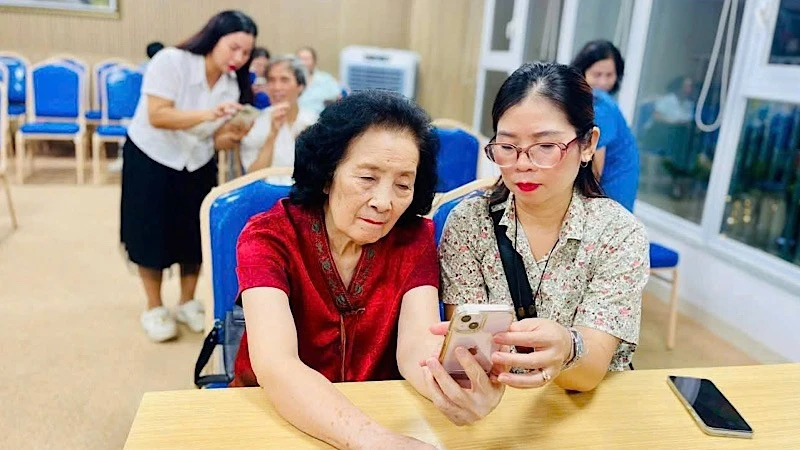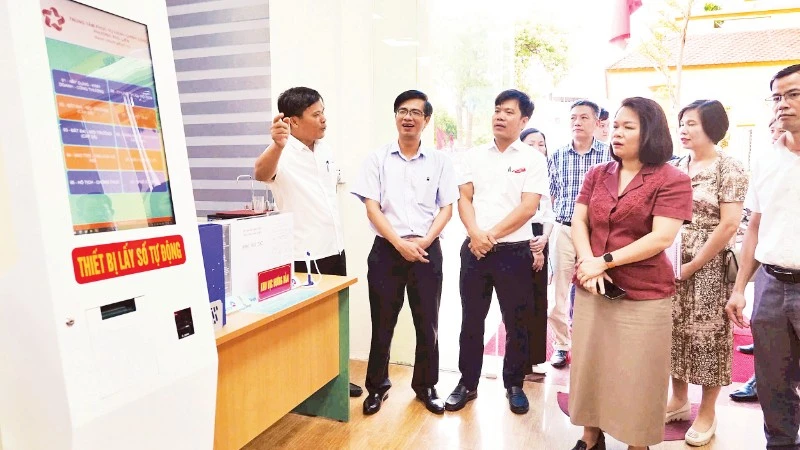Today, digital transformation is no longer only about technology or data infrastructure — it is about a shift in thinking, of management methods, and in how people adapt to the digital age.
For the State, it represents a step towards building a modern, transparent, efficient administrative apparatus that better serves citizens and businesses. For enterprises, it offers opportunities to optimise processes, cut costs, expand markets, enhance competitiveness, and generate new value. For citizens, it enables convenient access to online public services, saving time and expenses; digital healthcare and education; and safe electronic payment and shopping platforms.
Since 2020, the Government has issued a number of strategic decisions, notably Decision No. 749/QD-TTg approving the National Digital Transformation Programme for the 2025–2030 period, based on three pillars: digital government, digital economy, and digital society.
In addition, the Politburo’s Resolution No. 57-NQ/TW dated December 22, 2024 on breakthroughs in science, technology, innovation, and national digital transformation has been implemented in earnest.
The Ministry of Science and Technology is urgently finalising key legislative documents to accelerate the national digital transformation process, including the forthcoming Law on Digital Transformation.
According to the National Digital Transformation Agency (under the Ministry of Science and Technology), consistent leadership and coordinated action have yielded significant progress. Viet Nam has advanced 15 places in the United Nations E-Government Development Index, from 86th in 2022 to 71st out of 193 countries in 2024. The information technology sector’s revenue has increased by 24%, hardware and electronics exports by 29%; nearly 22 million digital signature certificates have been issued (covering more than 35% of the adult population); and over 64 million VNeID accounts have been activated.
Despite these positive results, the digital transformation journey continues to face several barriers, particularly institutional, infrastructural, and human-resource bottlenecks. Current policies and legal frameworks have yet to fully meet practical requirements; infrastructure and data systems remain fragmented with limited interconnectivity; and the information technology workforce, especially at grassroots level, remains both insufficient and underqualified.
Digital transformation is not solely the task of the State or businesses — it requires the proactive participation of every citizen. From policy to practice, many initiatives have emphasised the central role of the people. Yet, to achieve true nationwide digital participation, there must be a shift from passive beneficiaries to active users and advocates of technology.
Citizens can only be at the centre when they are listened to, guided, and empowered to master technology. Initiatives such as “Community Digital Technology Teams” and “National Days of Digital Learning” have effectively turned policy into community movements, enabling citizens to learn, practise, and share digital skills in familiar, accessible settings.
Many localities have implemented the campaign “Reach every alley, visit every home, guide every citizen in digital skills” to promote widespread use of public services, electronic payments, and digital identity. When every civil servant acts as a “digital ambassador,” patiently guiding and building trust, citizens will no longer hesitate to change their habits. With this growing awareness, people’s roles evolve — from mere “beneficiaries” to true “creators of a digital society.” Only when citizens take ownership does technology truly demonstrate its value, and digital transformation becomes deeply rooted in everyday life.
When technology truly serves the people, and people remain at the heart of change, “digital transformation closer to the people” will no longer be a yearly theme but a lasting direction for Viet Nam’s digital future.
















